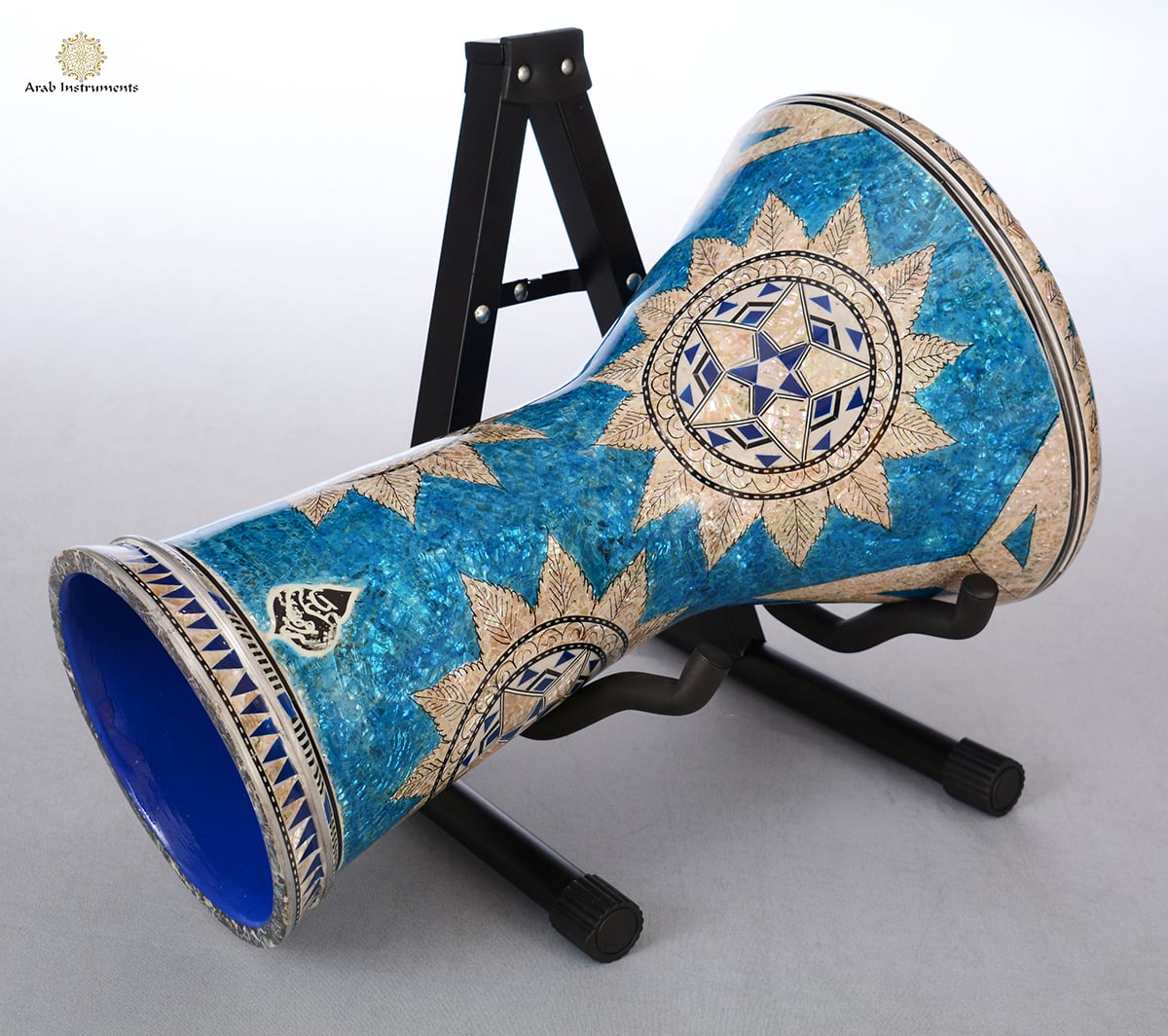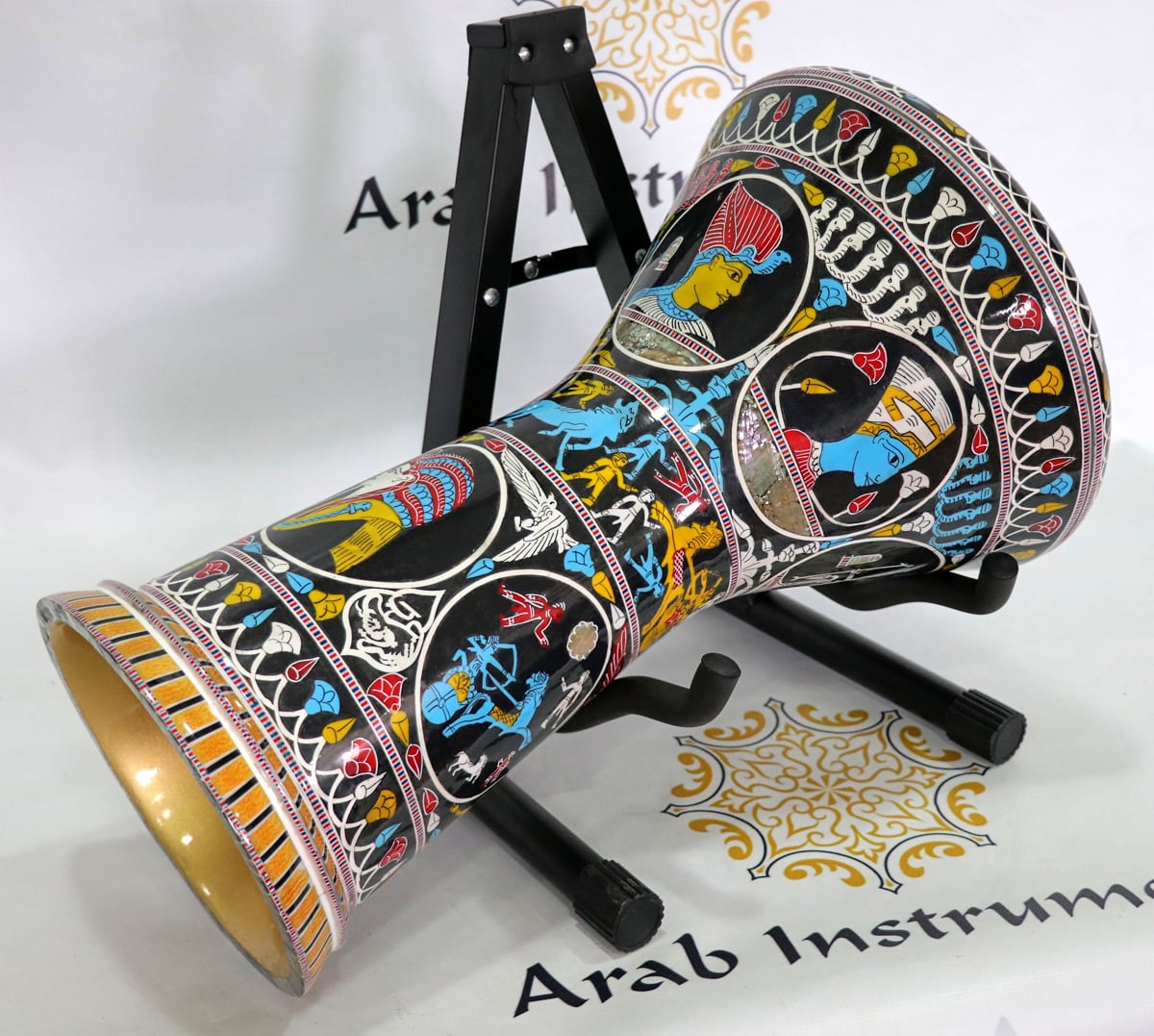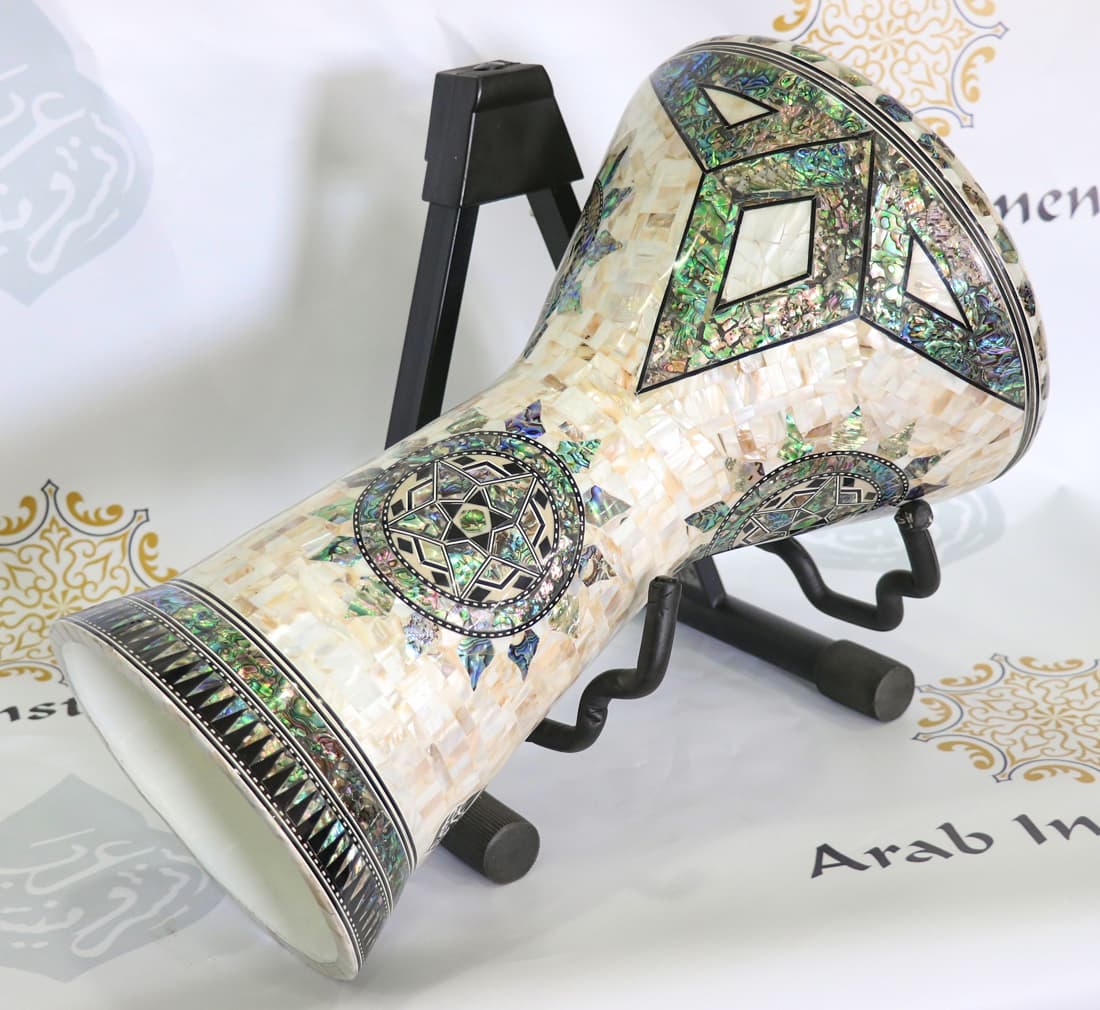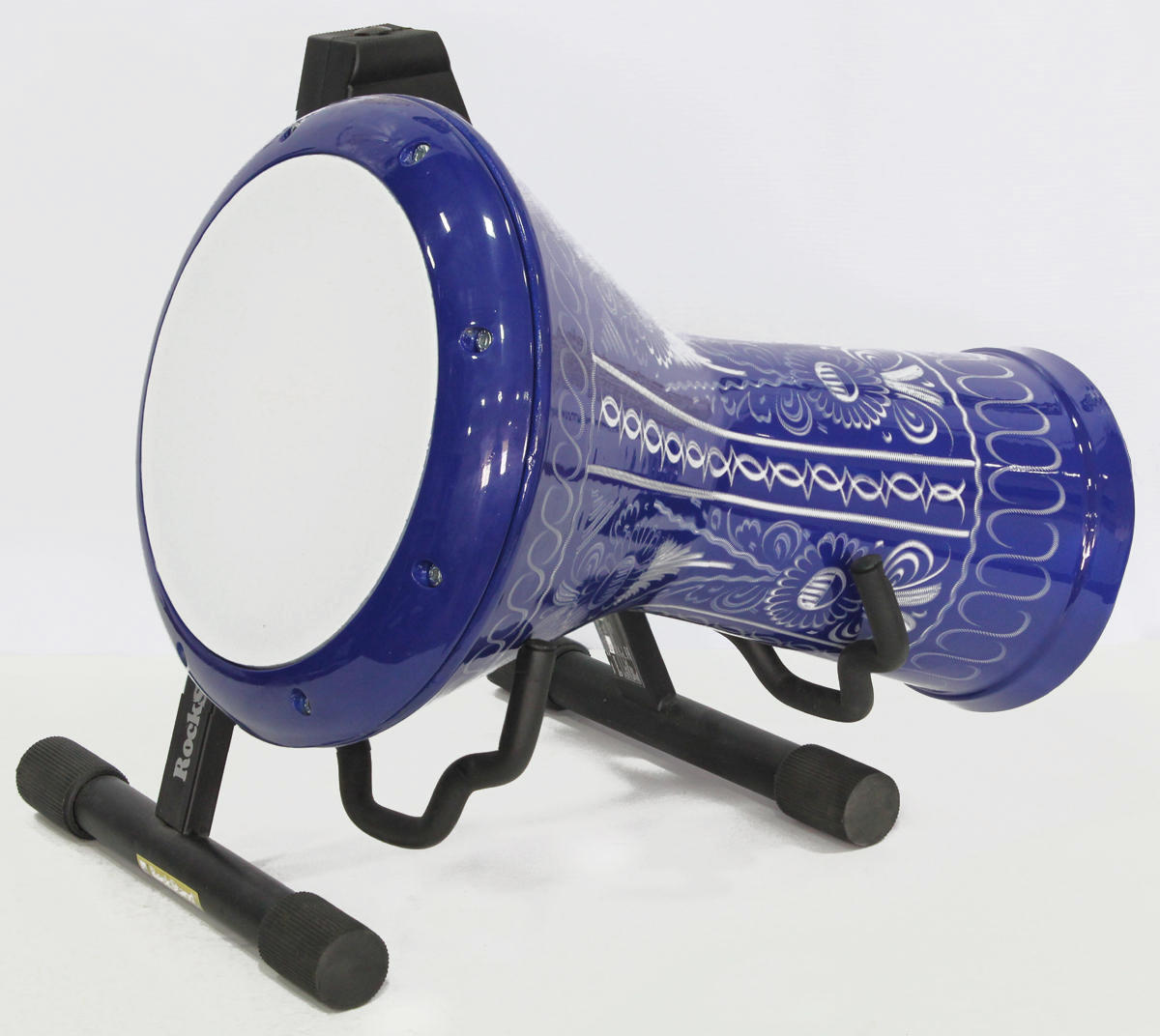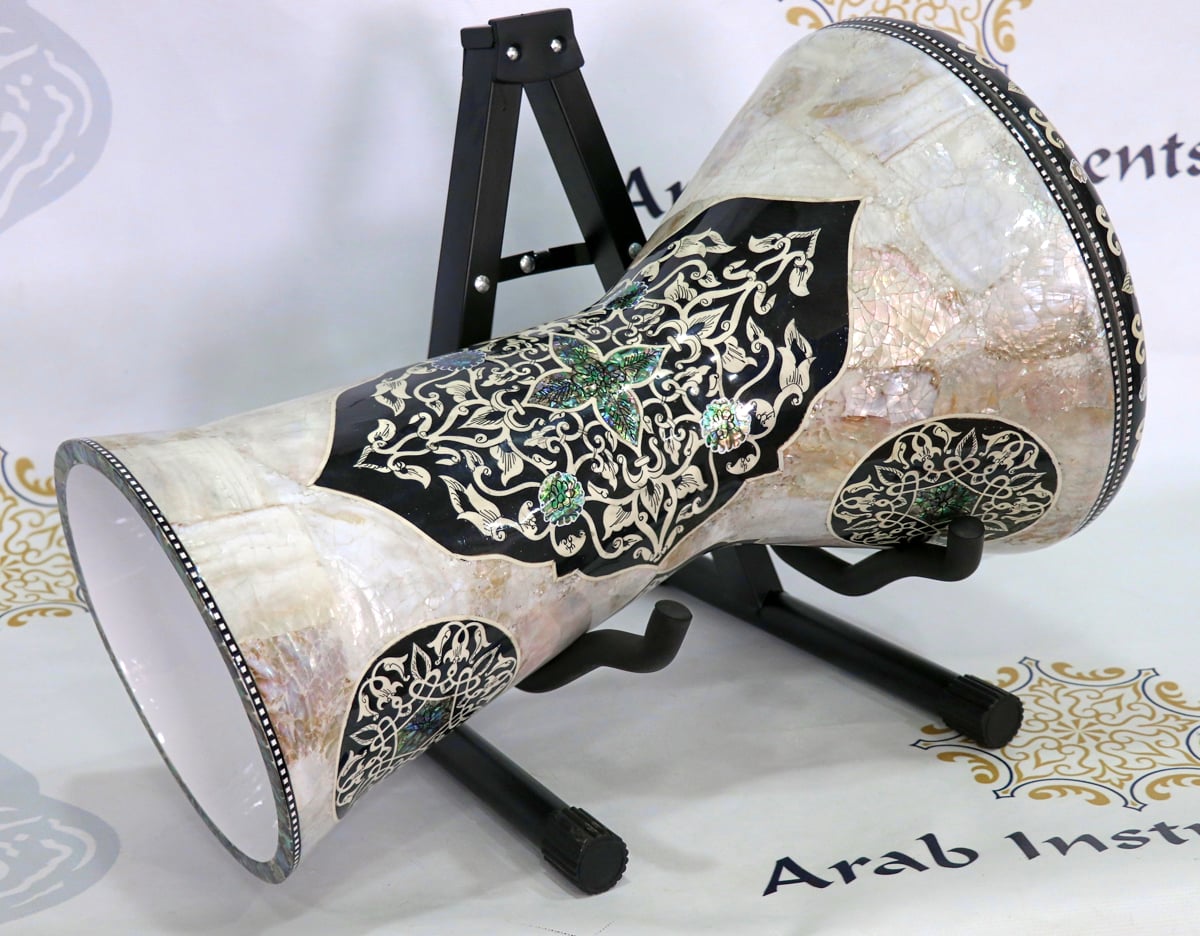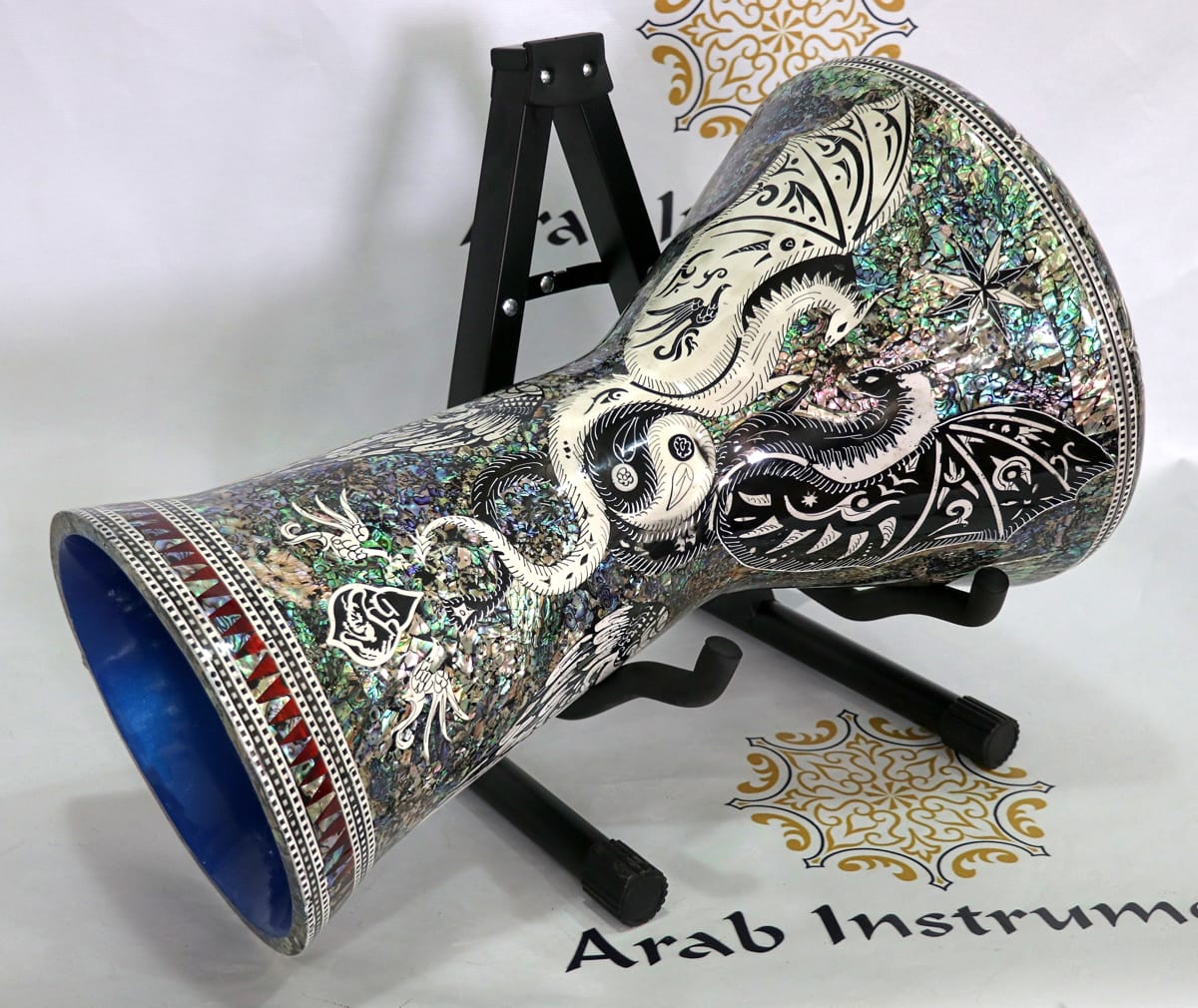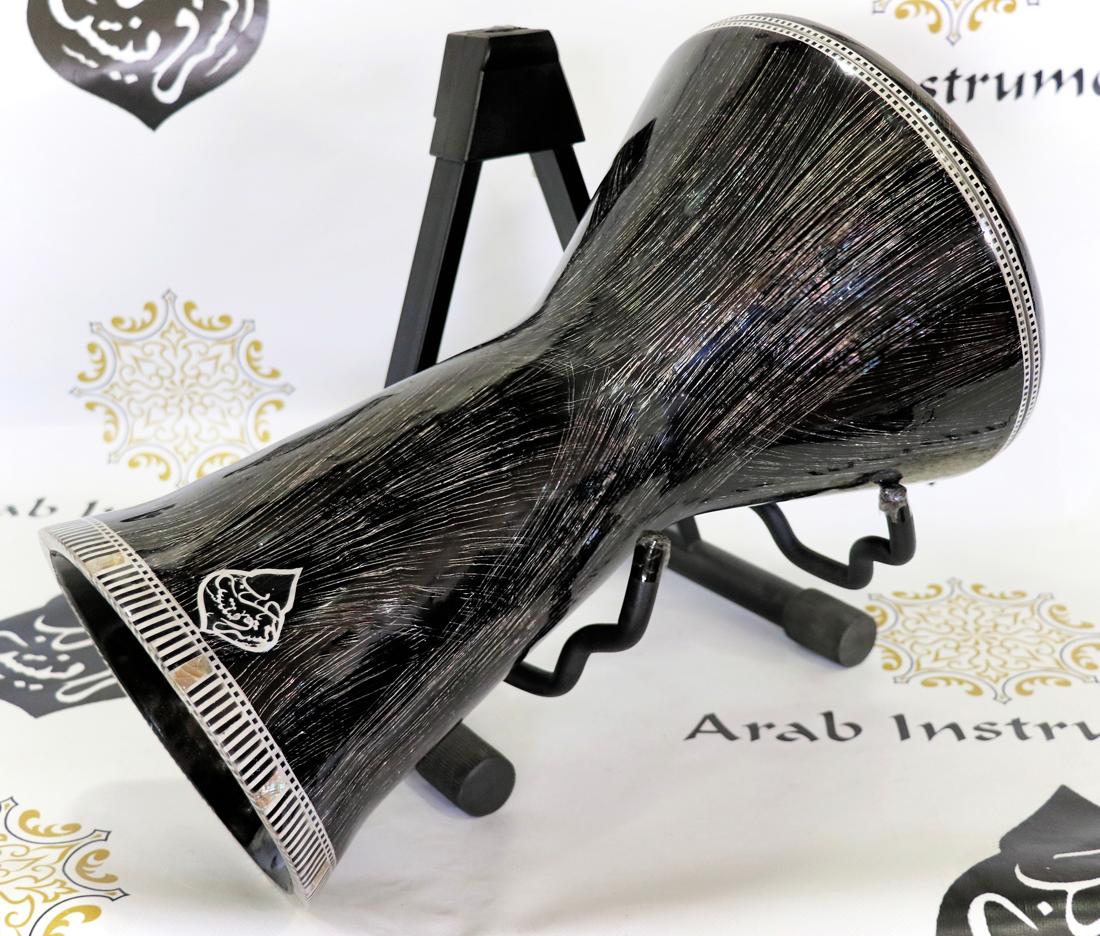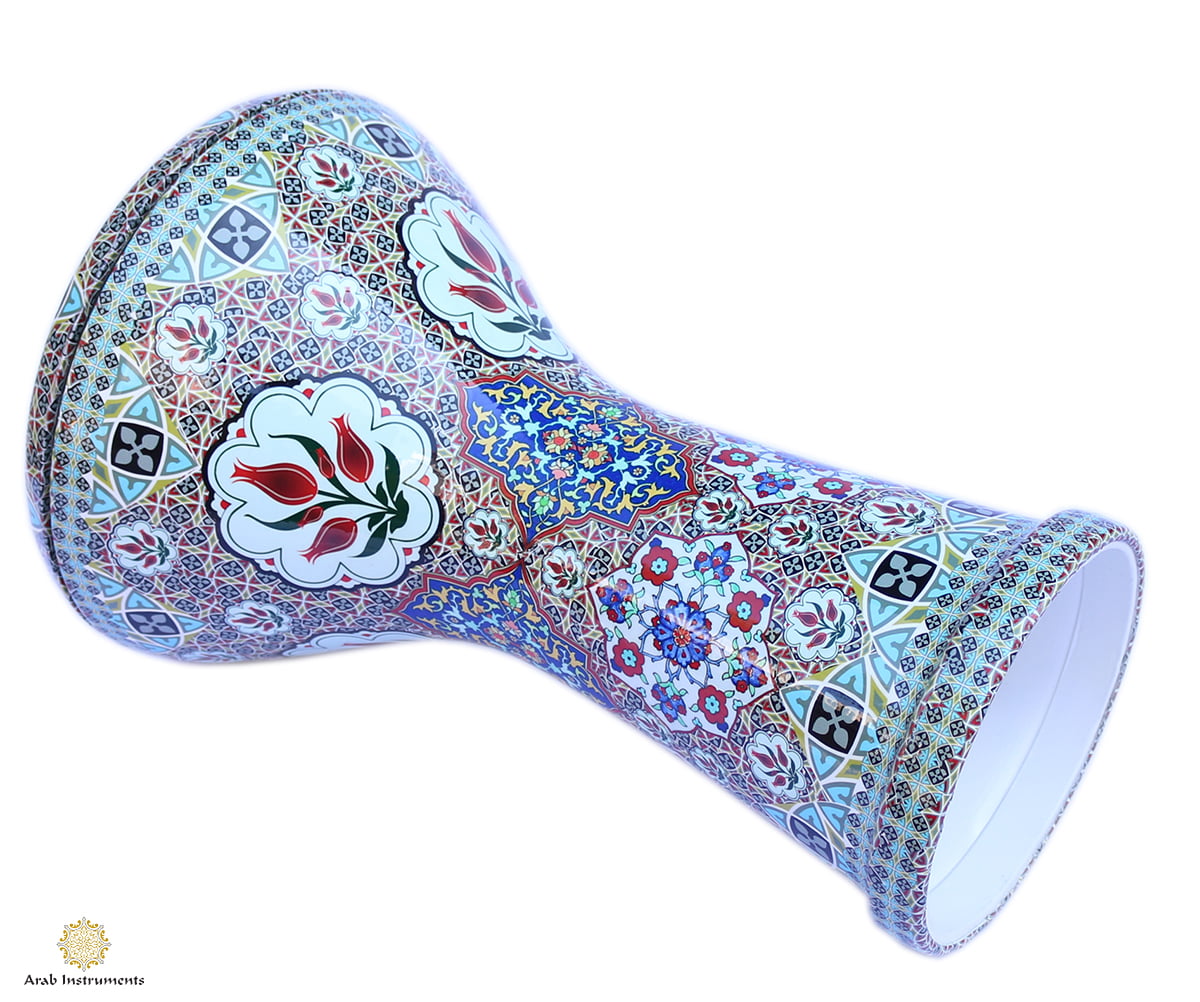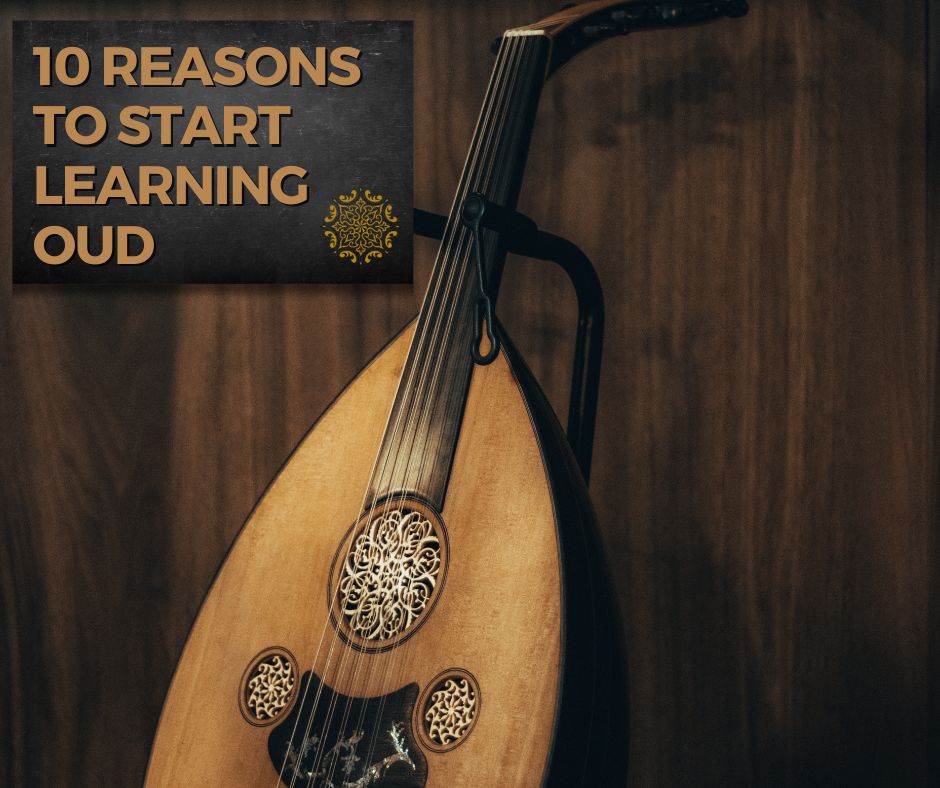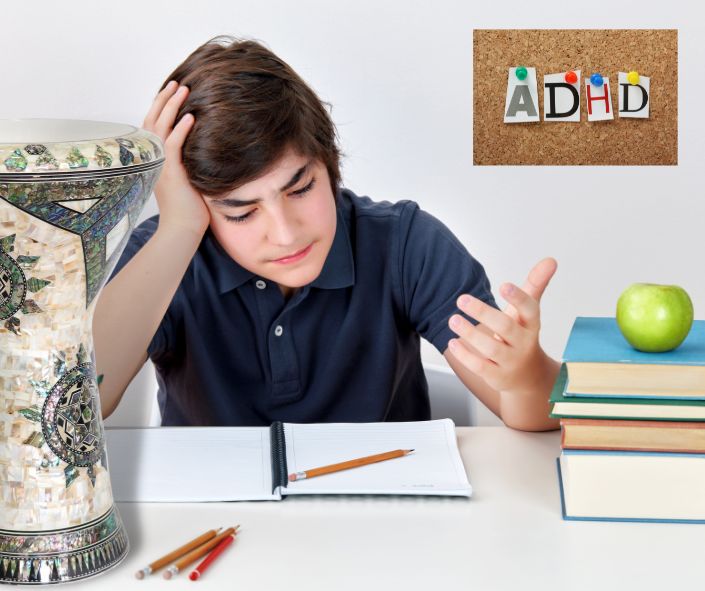
The Healing Beat: The Benefits of Darbuka Drumming for Children and People with ADHD
Attention Deficit Hyperactivity Disorder (ADHD) is a neurodevelopmental disorder that affects both children and adults, characterized by symptoms such as hyperactivity, impulsivity, and difficulty sustaining attention. Managing ADHD can be challenging, but emerging research suggests that incorporating music therapy, specifically playing the darbuka drum, can have a profoundly positive impact on individuals with ADHD, enhancing their lives in numerous ways.
1. Focused Attention and Concentration:
Playing the darbuka drum requires a level of focus and concentration that can be particularly beneficial for individuals with ADHD. The rhythmic patterns and repetitive motions involved in drumming help engage the brain, promoting sustained attention and helping individuals stay on task. This heightened focus during drumming sessions can often carry over to other aspects of life, enabling better concentration in academics, work, and daily activities.2. Emotional Regulation:
Doumbek drumming has a powerful effect on emotions, allowing individuals to express themselves through rhythm and beats. For children and people with ADHD, who may struggle with emotional regulation, playing the darbuka can serve as an outlet to release pent-up emotions, reduce stress, and enhance emotional self-awareness. It can also provide a structured and non-verbal means of communication, which can be particularly beneficial for those who find it challenging to express themselves verbally.3. Improved Motor Skills:
Coordinating the hands, fingers, and sometimes the feet while playing the darbuka drum helps improve motor skills and hand-eye coordination. For children with ADHD, this physical aspect of drumming can be therapeutic and contribute to better motor control and balance.4. Enhancing Social Skills:
Playing the darbuka drum in a group setting fosters a sense of community and enhances social skills. Collaborating with others in creating rhythmic patterns encourages teamwork, communication, and the ability to take turns. For children with ADHD, this can be especially valuable in developing healthy social interactions and building meaningful relationships with peers.5. Stress Reduction and Mindfulness:
Darbuka drumming has been shown to induce a state of mindfulness and relaxation. For individuals with ADHD, who may experience heightened stress levels, drumming can serve as a calming and grounding activity. Engaging in rhythmic drumming allows the mind to focus on the present moment, promoting mindfulness and reducing anxiety.

6. Boosting Self-Esteem and Confidence:
As individuals progress in their darbuka drumming skills, they experience a sense of accomplishment and pride. Success in mastering new rhythms and patterns boosts self-esteem and confidence, which can positively impact other aspects of life as well. This newfound confidence may encourage individuals with ADHD to pursue other interests and challenges outside of drumming.7. Creative Expression:
Darbuka drumming is an inherently creative activity that allows individuals to express themselves freely. For children and people with ADHD, who may have vibrant imaginations, playing the darbuka provides a creative outlet to channel their energy and ideas.
In conclusion, playing any darbuka drum can be an incredibly beneficial therapeutic tool for children and people with ADHD. From enhancing focus and emotional regulation to fostering social skills and creativity, the rhythmic practice of drumming offers a holistic approach to improving their quality of life. Incorporating darbuka drumming into therapeutic interventions and educational settings may unlock the potential for growth and self-discovery in individuals with ADHD, empowering them to lead more fulfilling and enriched lives.

